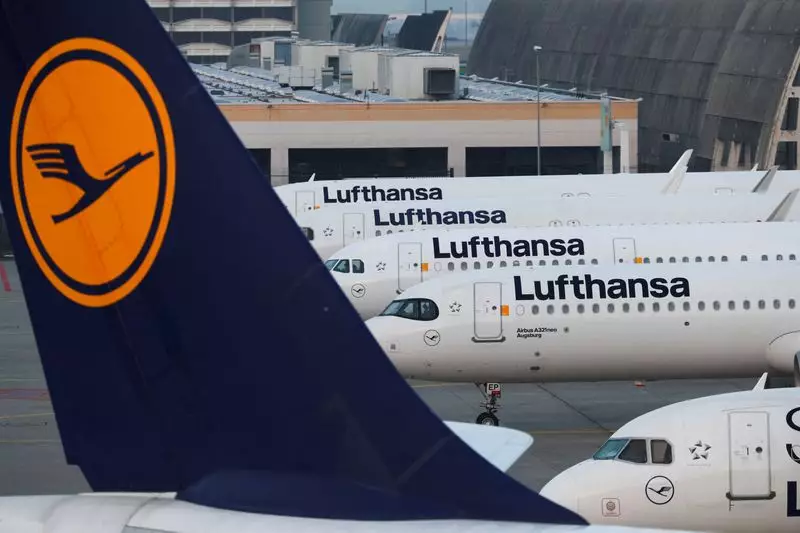German airline Lufthansa is facing a challenging third quarter, with expectations of lower earnings due to falling yields and increasing unit costs. The aviation industry in Europe is experiencing a flattening demand, leading to setbacks for airlines dealing with rising costs and limited availability of aircraft. Airfares in both Europe and Asia have plateaued or decreased, indicating the end of the post-COVID travel boom.
Lufthansa CEO Carsten Spohr mentioned a significant increase in capacity and sales volumes for the passenger airlines but highlighted the pressure on prices due to market-wide capacity growth. This has resulted in lower yields for the airline. Compared to last year, Lufthansa has been hit harder due to a more aggressive approach to expanding capacity, leading to the normalization of ticket prices.
Lufthansa is expecting a decline in adjusted earnings before interest and taxes (EBIT) for the third quarter, falling short of the 1.5 billion euros level from the previous year. The challenges primarily lie within the main-brand passenger business of Lufthansa Airlines. The company had already revised its profit target earlier this year, reflecting the ongoing struggles faced by the airline.
Spiralling Costs for European Airlines
The aviation industry in Europe as a whole has been grappling with spiralling costs, impacting earnings and profitability. Other airlines like Air France KLM and Ryanair have also faced challenges with higher costs, leading to missed profit forecasts. Lufthansa’s shares have experienced a significant decline over the past six months, reflecting the difficulties in recovering its financial standing.
Lufthansa has reported a sharp decline in group net results for the April-to-June period, primarily attributed to delayed aircraft deliveries and disruptions in fleet management. Repair costs for older planes have increased, while rising wages for staff in Germany have added to the operational challenges faced by the airline. Strikes earlier in the year also impacted second-quarter earnings for the group.
Lufthansa’s struggles reflect the broader challenges faced by European airlines in the current aviation landscape. The combination of lower yields, increasing costs, and operational disruptions poses significant obstacles for the company moving forward. As the industry continues to navigate through the aftermath of the COVID-19 pandemic, airlines like Lufthansa will need to adapt and innovate to stay competitive and resilient in the face of adversity.

